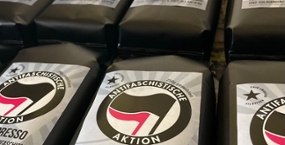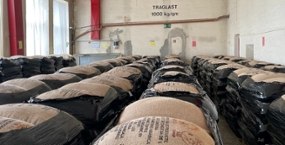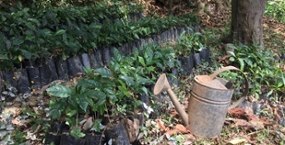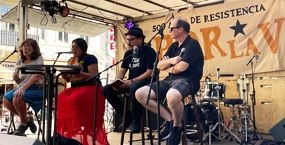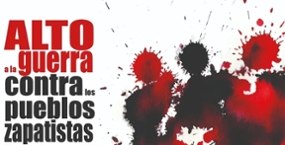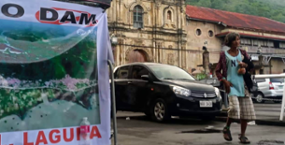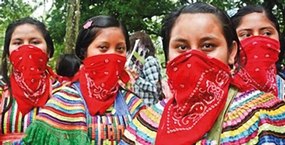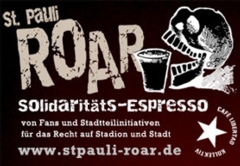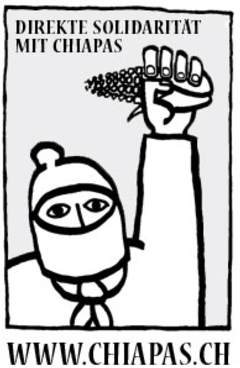Outlook
Coffee for the daily uprising
We do not have a ready-made answer to capitalist conditions. In a globalised world determined by capitalist principles, the options of fair or solidary trade are necessarily limited. A solidary economy, therefore, cannot confine itself to enforce better prices within the intrinsically wrong system of world trade. Consequently, support of social movements and protests is a vital part. Coffee projects built on solidarity aren't neutral and they are not only to be found in shops and cafés but, at best, in the streets.
Further problems can arise by a widening social gap in the communities if coffee is relatively well paid compared to food like corn or beans. In the worst case, isolated markets will encourage mono-cultures and dependent labour. Therefore, it is important to develop forms of trade and production supporting bio-diversity as well as cooperatives' independence and autonomy and at the same time redistributing revenue to as many community members as possible, e.g. via grants for infrastructure.
Producers' auto-certification and self-marketing will also be of increasing significance in future. The more value added remains in the production countries, the more sustainable conditions will be, even on a global scale. Supporting quality development and education will gain even more importance. Solidary trade is enforcing self-empowerment of small-scale farmers, cooperatives and consumers. At best it will make itself redundant to allow for an entirely different whole.
There are numerous players in fair and solidary trade pursuing tight cooperation with coops based on solidarity. Concepts vary, but associations and organisations are united by the intention to develop alternative forms of trade and to generate more value added in production countries. It doesn't matter whether you buy your coffee at Café Libertad Kollektiv or at other solidary or fair traders. But it is essential not to rely on seals alone. Some organisations and corporations are rather involved in greenwashing than developing real alternatives to world trade.
Even big corporations have jumped on the successful bandwagon and have converted to 'fair' trade in order to benefit from its positive image. As the certified coffee's market share is increasing, criticism of this type of alternative trade is intensifying as well. A huge proportion of fair-traded products' value added is realised not in production countries but primarily in the processing and marketing sector. Small-scale farmers are complaining about low and stagnating minimum prices. Additionally, bureaucratic obstacles and lack of controls are favouring bigger suppliers. Associations and cooperatives in production countries are criticising inefficiency and lack of participation at big certification organisations and are developing regional auto-certification.
In practice, due to these structures fair products tend to differ less than desired from the general mechanisms of the raw coffee world market and are becoming their own high-price segment within these structures due precisely to their economic success. Nowadays fair coffee is frequently traded in a similar way as conventional coffee in the great trading places worldwide. Additionally, supermarket distribution channels are subject to original market forces, i.e. a rigid price and purchase policy, in spite of an ecological or socially acceptable facade. Consequently, it's worth it to look closely where your coffee comes from, how it has been produced and where it is sold - even if it is displaying a seal.
An integral part of Café Libertad Kollektiv policy is to forego production and distribution structures of intermediaries like supermarket chains. The more direct and transparent the coffee's way to the consumer, the better economic and political conditions. Hence, it is possible to work more sustainable and self-determined and to accomplish tighter cooperation of small-scale farmers, producers and consumers as a model of solidary agriculture.
Furthermore, 'Coffee for the daily uprising' stands for a tight connection with oppositional and resistant groups, of supporting them and of being a part of local struggles and social movements all over the world. We are not into lobby politics pleading to established political institutions but are supporting as directly as possible emancipatory self-organisation and the development of resistant economies as a base of social struggle.

